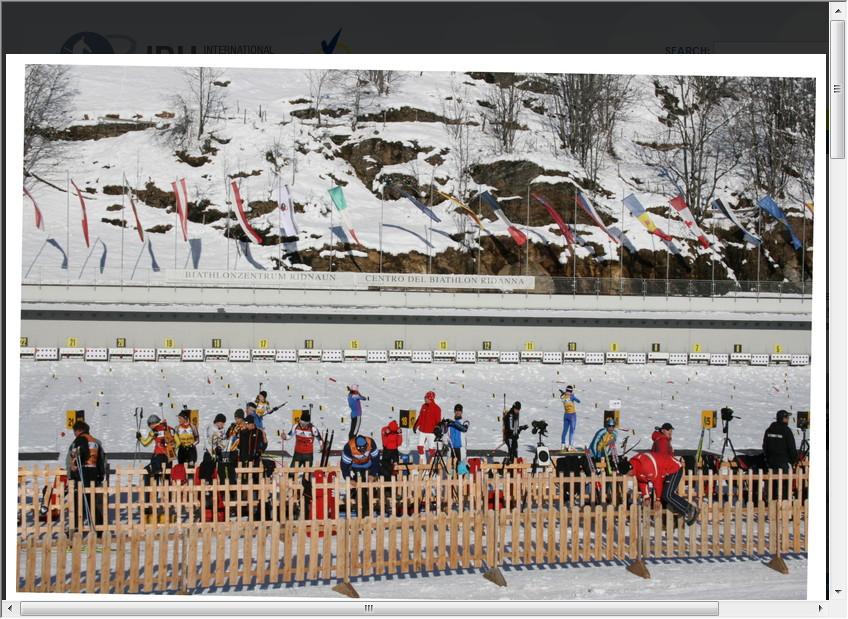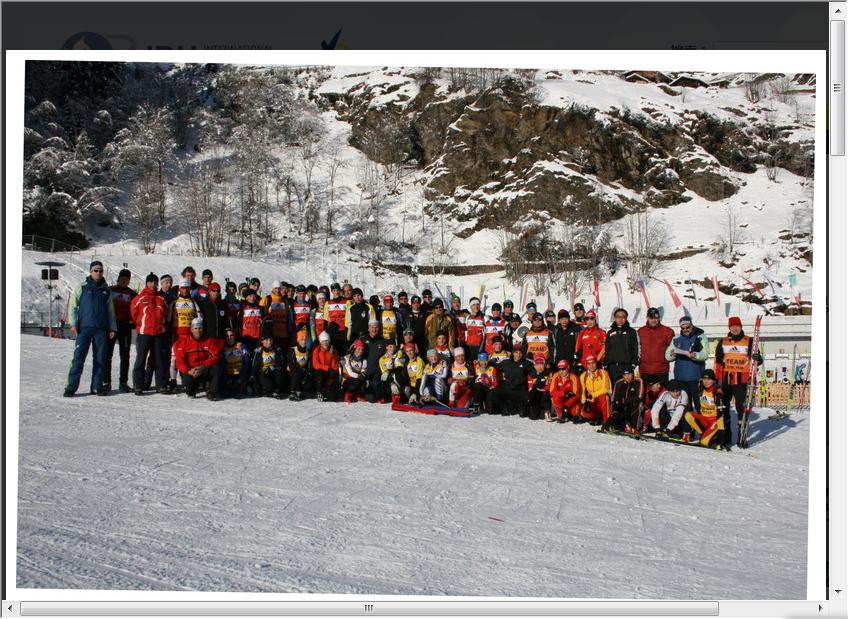| Photo GalleryCopyright:“This camp has been very good because I learn a lot about other countries and other people. The Turkish girls call us ‘sisters’ now and gave us little bracelets as a sign of our friendship” said 17-year-old Ana Angelova from Macedonia. Sie was one of the 56 athletes at the camp which was conducted by IBU in cooperation with UNESCO. All the athletes were accompanied by one coach per nation. The IBU brought in the Head Coach for the camp, Janez Vodicar, together with second coach Ubaldo Prucker, who were supported administratively by IBU Sport Assistant Felix Bitterling. IBU Assistant Race Director Ventzeslav Iliev also helped with the planning, organizing, and during training. Their biggest challenge during the camp was the time, as eight days are not a lot to teach these athletes and coaches from the developping nations everything they need to know about Biathlon. Still, the coaches split the athletes in groups according to their abilities and tought a new shooting and a new skiing exercise every day which they can now use for training at home. In addition, Vodicar taught a theoretical lesson every evening and worked on Biathlon theory with the coaches. The material for the lessons about shooting, skiing, the techniques behind them, preparations for a competition or strength training, including a film about Biathlon shooting, were prepared by Vodicar himself. Political problems not important “The main achievement of this camp has been the increased understanding between the athletes from very different countries,“ stressed Bitterling on the last day of the camp. He was especially impressed that political difficulties and the fact that countries have been enemies did not influence the athletes or coaches. “It is great to see the coach from China work with the athletes from Chinese Taipei so that they get a good training. Also, athletes and coaches from countries like Croatia, Serbia or Bosnia-Herzegovina laughed and worked together; I think this is something special.” The cooperation and friendships formed almost as a side effect during shared meals and during training, even though the schedule of the camp was packed. Each morning before breakfast all athletes went for a short run together, then there were practical training sessions in the morning and afternoon and a theoretical lesson after dinner. These lessons covered a wide mix of topics like biathlon rules, competition preparation, and analysis and also the correct way of waxing skis. For this, IBU Partner TOKO sent Lois Uhl, a specialist for waxing, who worked with the athletes on two days. Athletes and Coaches improved “All athletes improved a lot but I think the coaches improved most,“ explained both Iliev and Bitterling. “The coaches started their work earlier and prepared the shooting range in the morning. Then, after training, they tidied and cleaned up together. In the evening, we taught them more or some different aspects of the theories than the athletes.” The interest by the coaches was huge as in some participating nations there are hardly any coaches with good training and skills in Biathlon technique and training structure. Phill Thomson from New Zealand, who is the coach of his 14-year-old daughter Olivia admitted, he has a much better idea what the requirements for his daughter’s training are, “I profited a lot and I learned a ton.” Focus on Anti-Doping One of the main points of the camp was the education about Anti-Doping for athletes and coaches. In order to give a lesson on this important topic, IBU Secretary General Nicole Resch and Lucie Rothauer, responsible for the ADAMS-System at IBU came to Ridnaun for one evening. So far, only two athletes at the camp have undergone a doping test and the information about this topic was very new for most of the athletes. Rothauer explained the ADAMS System, with which the athletes submit their whereabout information. The system is also used for the storage and administration of the anti-doping data about an athlete as well as for the Therapeutic Use Exemptions, the so-called TUEs. The athletes were especially interested in the presentation of the Anti-Doping-Education Program, Clean Biathlonworld which has been available for athletes and their support staff on this website. The program teaches them about doping tests as well as their rights and duties in a playful way. A short film from the World Anti-Doping Agency WADA was also interesting to the athletes, after all about 60 percent of them already participate in the IBU-Cups and thus could be tested at any time. Athletes on High Level The fact that so many athletes have already started at IBU-Cups also shows the level on which the camp was conducted. “The athletes from China, Kazakhstan or Japan are close to being in the World Cup,” confirmed Vodicar. The athletes on a somewhat lower level made up for this with their enthusiasm and willingness to learn and improve. That was exactly what Vodicar praised during the last evening, “You were an excellent group, not just good but excellent. You were very focused and I am proud of you!” Now they should keep doing what they learned during their training at home, he continued. And especially the young athletes should be given enough time to develop without too many expectations. English, Hands and Feet Coaches and athletes promised to do so, and to each other they promised to keep in contact. Although from so many different countries, they had no problems communicating. At least one member of each team spoke English, they translated for each other and sometimes used hands and feet to get their points across. Still, Ana Angelova explained, “I realized here how important it is to speak English. In our team there are some who don’t speak much English but all of them promised to study more when they get home so that next time they can talk more.” Thus, Biathlon does not only improve the understanding between cultures but, as a side effect, maybe also helps improve some grades. |


